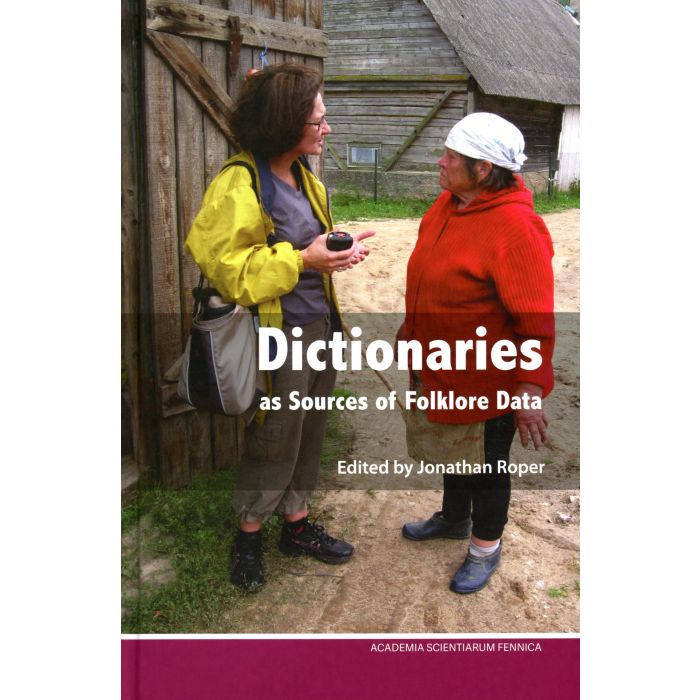Vi använder cookies för att göra din upplevelse bättre. För att följa det nya direktivet om e-integritet, behöver vi be om ditt medgivande att sätta cookies. Läs mer.
Dictionaries as Sources of Folklore Data
28,00 €
I lager
SKU
978-951-41-1157-0
Dictionaries as Sources of Folklore Data
Ed. Jonathan Roper
Suomalainen Tiedeakatemia
Folklore Fellows' Communications 321
Tallinn 2020, 246 pp.
Ed. Jonathan Roper
Suomalainen Tiedeakatemia
Folklore Fellows' Communications 321
Tallinn 2020, 246 pp.
What does Elias Lönnrot have in common with Vladimir Dahl, Antoni Maria Alcover and the Brothers Grimm? The answer is that all of these folklorists were also lexicographers. And there is much folklore data buried in dictionaries, whether compiled by those who were folklorists or by those who were not. Thus dictionaries represent a notable source of folklore data supplementary to the already familiar field, archival and monographic sources. This book attempts to take the measure of such data with a set of studies ranging from Greece to England, and from Newfoundland to Trinidad and Tobago.
An introductory essay discusses the location of folklore within dictionaries. Then the first of the three main sections of the book deals with the role folklore has played in the formation of certain remarkable dictionaries. This is followed by a series of case studies of the folklore content of particular dictionaries. And the book closes with a set of studies that address the methodological issues that using dictionaries as folklore sources raises.
The authors of these chapters are: Jasmina Dražic, Anne Dykstra, Jeremy Harte, Philip Hiscock, Zoja Karanovic, Diarmuid Ó Giolláin, Haralampos Passalis, Jonathan Roper, Timothy R. Tangherlini, and Lise Winer.kertoja
An introductory essay discusses the location of folklore within dictionaries. Then the first of the three main sections of the book deals with the role folklore has played in the formation of certain remarkable dictionaries. This is followed by a series of case studies of the folklore content of particular dictionaries. And the book closes with a set of studies that address the methodological issues that using dictionaries as folklore sources raises.
The authors of these chapters are: Jasmina Dražic, Anne Dykstra, Jeremy Harte, Philip Hiscock, Zoja Karanovic, Diarmuid Ó Giolláin, Haralampos Passalis, Jonathan Roper, Timothy R. Tangherlini, and Lise Winer.kertoja


